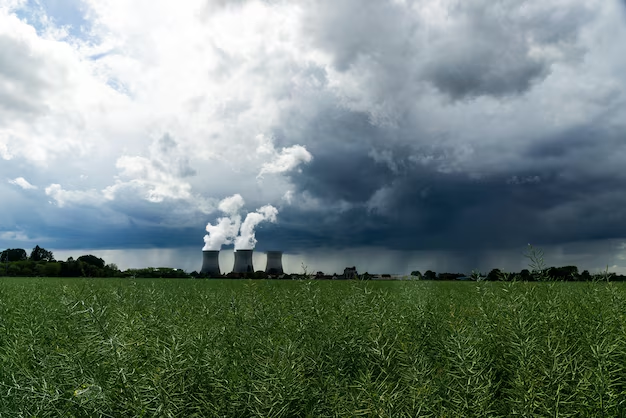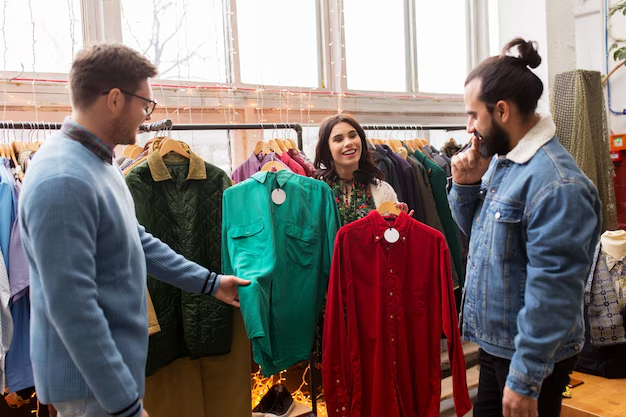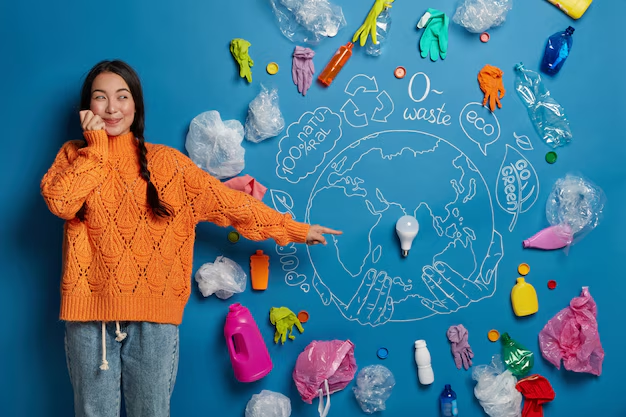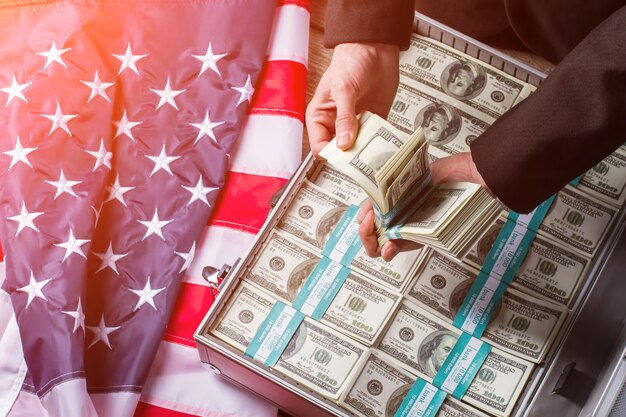5 Fast Fashion Brands We Need to Stop Supporting when I look at the latest fashion trends, I feel a pang of guilt. The cheap, trendy clothes are tempting, but what’s the real cost? Fast fashion hides a dark side of poor labor conditions and harming the environment. It’s time to face the truth and stand up against these harmful brands.
This article will highlight five major fast fashion brands criticized for their bad business ways. By knowing the problems with these companies, we can make better choices. We can support brands that care for the planet and people.

Key Takeaways
- Fast fashion brands are known for their unethical labor practices and environmental impact.
- Consumers should stop supporting these brands to hold them accountable and drive change in the industry.
- Sustainable alternatives, such as slow fashion and conscious consumerism, offer more ethical options.
- Addressing the textile waste crisis and workers’ rights violations is crucial in the shift towards ethical fashion.
- By voting with our dollars, we can create a demand for ethical and environmentally-friendly fashion.
The Dark Side of Fast Fashion
Fast fashion has changed how we shop, but it has a big downside. The textile industry, led by fast fashion, is known for bad labor practices and harming the environment.
Unethical Labor Practices
Fast fashion brands are often accused of mistreating workers, especially in poor countries. These workers, often women, earn low wages and work in dangerous conditions. They also work long hours with no job security.
The 2013 Rana Plaza disaster in Bangladesh showed the deadly cost of fast fashion. Over 1,100 garment workers lost their lives.
Environmental Impact
The environmental effects of fast fashion are scary. Making textiles, especially synthetic ones, pollutes a lot. It harms water, air, and causes greenhouse gases.
Also, most textiles end up in landfills or being burned, making the waste crisis worse. The fast fashion model encourages us to buy and throw away clothes often. This hurts the environment and keeps workers in poor conditions.

We can make a difference by choosing to buy clothes more thoughtfully. Supporting ethical and sustainable fashion brands helps. By highlighting the problems with fast fashion, we can push for a better future. One where workers and the planet come first.
Five fast fashion brands we need to stop supporting
The fast fashion industry has changed the way we shop for clothes. Brands like H&M, Zara, Forever 21, Shein, and Boohoo offer trendy clothes at low prices. But, these brands have a dark side.
H&M, a Swedish giant, has faced criticism for its labor issues. There have been reports of bad working conditions, low wages, and child labor in their factories.
Forever 21, an American brand, has been under the spotlight for its treatment of workers. Workers have reported long hours for little pay.

Boohoo, a UK fast fashion brand, has been in a scandal over worker exploitation in its Leicester factories. Workers faced poor conditions, low wages, and unsafe workspaces. This has damaged the company’s image and caused public anger.
These brands not only exploit workers but also harm the environment. They use cheap, unsustainable materials and produce a lot, leading to waste and pollution.
As shoppers, we must stand up against these wrongdoings. We should support brands that care for sustainability, fair labor, and the environment. By choosing wisely, we can help make fashion more ethical and sustainable.
Overconsumption and Greenwashing
The fast fashion industry pushes us to buy new clothes all the time at low prices. This leads to a lot of environmental harm, with billions of clothes ending up in landfills yearly. Many fast fashion brands also greenwash, making false claims about being eco-friendly.

Buying too much is a big problem in fashion. Overconsumption means buying more than we need, thanks to always new trends at low prices.
Greenwashing means making false claims about a product’s environmental benefits. They use marketing tricks to seem eco-friendly without really working on reducing their environmental harm.
Together, overconsumption and greenwashing harm the environment a lot. Fast fashion is a big source of greenhouse gas emissions, water pollution, and textile waste. Every year, millions of tons of clothes go to landfills, releasing methane and other bad gases.
To fix these problems, we need to shop more sustainably and support brands that really care about the environment. This means buying less, choosing quality over quantity, and picking brands that focus on being eco-friendly and ethical.
Sustainable Alternatives
More people now know the harm fast fashion does to our planet. This has led to a big demand for sustainable fashion. The slow fashion movement and conscious consumerism push us to buy better and support brands that care for the planet and people.
Conscious Consumerism
Conscious consumerism teaches us to think about how our buying affects the world. It’s about choosing brands that are good for the earth and fair to workers. By choosing these brands, we help make fashion more sustainable.
Slow Fashion Movement 5 Fast Fashion Brands We Need to Stop Supporting
Slow fashion is all about quality over quantity. It’s about making clothes that last a long time, not just for a season. This way, we waste less and think more about what we buy. It also helps local makers and artisans.
Brands like Patagonia, Everlane, Eileen Fisher, and Stella McCartney are leading the way in sustainable fashion. They’re open about their processes, use eco-friendly materials, and treat workers fairly.
As more people learn about sustainable fashion, they have more chances to make better choices. They can support brands that care for the planet and people.
| Sustainable Fashion Brands | Key Sustainability Practices |
|---|---|
| Patagonia | Uses recycled and organic materials, implements fair labor practices, and follows a circular business model. |
| Everlane | Focuses on transparent supply chain, uses ethical factories, and offers high-quality, durable products. |
| Eileen Fisher | Promotes circularity through its “Take Back” program, uses organic and recycled materials, and supports fair wages. |
| Stella McCartney | Avoids the use of leather, fur, and other animal-derived materials, and prioritizes sustainability throughout its operations. |
Workers’ Rights Violations
The fast fashion industry is known for ignoring workers’ rights, especially in developing countries. These countries make many of the clothes we buy. Workers face low wages, dangerous jobs, and exploitation. The low prices of fast fashion come at a big cost to the people making our clothes.
Fast fashion brands often ignore poor labor practices. They focus on making more money than on keeping their workers safe. Workers often work long hours in bad conditions, without job security or benefits.
It’s also sad that fast fashion uses child labor and forced labor, especially in places with weak rules.
The fast fashion industry doesn’t share enough information about where their clothes come from. This makes it hard for us to know what’s in our clothes and who made them.
To fix the worker exploitation in fast fashion, we need to do many things. We need more openness, stricter rules, and a change in how we think. We must value the people who make our clothes more. This is the only way to make fashion more ethical and sustainable.
Textile Waste Crisis
The fast fashion industry is a big problem for our planet. Every year, billions of clothes are thrown away, ending up in landfills or being burned. This releases harmful gases and pollutes our environment. We need to change to a circular economy, where we use resources better and waste less.
Textile Waste Statistics
The problem of textile waste is huge. The United Nations Environment Programme (UNEP) says fashion makes 10% of global greenhouse gas emissions. This is more than all the emissions from flights and ships worldwide. Also, people now buy 60% more clothes and keep them half as long as before.
In the US, the Environmental Protection Agency says over 11 million tons of textile waste is made each year. Only 15% gets recycled or reused. The rest goes to landfills or is burned, making the fast fashion problem worse.
| Statistic | Value |
|---|---|
| Global greenhouse gas emissions from fashion industry | 10% |
| Increase in average clothing purchases per person in 15 years | 60% |
| Decrease in clothing lifespan in 15 years | 50% |
| Annual textile waste generated in the US | 11 million tons |
| Textile waste recycled or repurposed in the US | 15% |
These numbers show we need a big solution to the textile waste problem. This will help us move towards a sustainable future.
Embracing Ethical Fashion
More and more people are learning about the harm fast fashion causes. This has led to a push for ethical and sustainable fashion choices. By choosing what we buy, we can help change the fashion industry for the better.
Voting with Your Dollars
Supporting ethical fashion means spending money on brands that care about the planet and people. These brands focus on fair work, eco-friendly materials, and responsible making. By picking these brands, we tell the fashion world we want things to change.
It’s key to look into brands before buying. Check if they’re open about their green and ethical efforts. Look for labels like Fair Trade, B-Corp, or Cradle to Cradle. They show a brand’s dedication to being sustainable and responsible.

- Seek out brands that use organic, recycled, or responsibly-sourced materials.
- Support companies that pay their workers fair living wages and provide safe working conditions.
- Avoid fast fashion retailers known for their unethical labor practices and environmental impact.
By choosing ethical fashion, we can make a big difference. We push the industry to be better and more caring. This encourages more brands to be sustainable and responsible.
| Ethical Fashion Brand | Sustainable Practices | Worker Protections |
|---|---|---|
| Everlane | Use of recycled and organic materials, transparent supply chain | Fair wages, safe working conditions, no child labor |
| Patagonia | Commitment to using recycled and renewable materials, bluesign-certified | Fair labor practices, worker empowerment programs |
| Reformation | Use of sustainable fabrics, recycling and upcycling initiatives | Living wages, on-site childcare, paid time off |
Choosing ethical fashion helps make the industry better for everyone. It’s about caring for people and the planet.
Conclusion
The fast fashion industry faces big problems with its bad labor practices, harm to the environment, and too much waste. By learning about these issues and finding sustainable options, we can make better choices. This helps support a fashion world that cares for people and the planet.
By choosing to be more mindful in our shopping, we can help change things for the better. The slow fashion movement is all about making a positive impact. It’s about picking clothes that are good for people and the earth.
It’s time to leave behind the old ways of fast fashion. We need to find a balance between looking good, making quality items, and being responsible. By acting now, we can push for change. This ensures the fashion world works for everyone and our planet.
FAQ
What are the unethical labor practices in the fast fashion industry?
Fast fashion brands are known for treating workers unfairly. They pay low wages and work in dangerous conditions. This happens often in poor countries.
What is the environmental impact of the fast fashion industry?
Fast fashion harms the environment a lot. It creates pollution, waste, and uses up resources. These brands are big polluters.
What are five fast fashion brands we need to stop supporting?
We should stop supporting H&M, Zara, Forever 21, Shein, and Boohoo. They don’t treat workers well and harm the planet.
What is the issue of overconsumption and greenwashing in the fast fashion industry?
Fast fashion makes us buy too much, pushing for constant new clothes at low prices. Some brands lie about being green, which is bad.
What are the sustainable alternatives to fast fashion?
Instead of fast fashion, we can choose to buy better. This means thinking before we shop and picking brands that care for the planet and people.
How are workers’ rights being violated in the fast fashion industry?
Workers in fast fashion face many rights issues, especially in poor countries. They earn little, work in bad conditions, and are often taken advantage of.
What is the textile waste crisis and its impact?
Fast fashion creates a huge waste problem. Billions of clothes are thrown away each year, ending up in landfills or being burned. This pollutes our air and land.
How can consumers embrace ethical fashion?
To support ethical fashion, we should choose brands that are kind to the earth and workers. This encourages change and helps make fashion better for everyone.






